FAQs About Hand, Foot and Mouth Disease

- posted: Sep. 10, 2021
Hand, foot and mouth disease isn’t a childhood infection that’s often discussed but should be. After all, this communicable viral infection is more common in young children than most people realize. If you are concerned about hand, foot and mouth disease, or would simply like to know more, your pediatrician can certainly provide you with the information you need. In the meantime, here are some FAQS that can help you get the facts on this contagious infection.
Is hand, foot and mouth disease dangerous?
While the name might make this condition sound rather frightening, the truth is that many kids under the age of five develop this illness. This is because these viruses are quite contagious. Even though this most often impacts young children, this infection can also present in older children, teens, and even adults.
What are the symptoms?
The incubation period for hand, foot and mouth disease is about 3-6 days from exposure. At first, symptoms may appear mild and look similar to the common cold (e.g. runny nose, fever, and sore throat); however, blisters will then start to develop within the mouth and on the body (often the palms of the hands and soles of the feet).
How is it diagnosed?
A diagnosis is often made by a pediatrician through a simple physical evaluation. They will go through your child’s medical history, examine the blisters and ask questions about your child’s symptoms to determine whether this could be hand, foot and mouth disease. Some testing may be performed to rule out other conditions.
How is hand, foot and mouth disease treated?
Unfortunately, there isn’t a medication that will get rid of hand, foot and mouth disease. Like most viral infections, the infection just has to run its course; however, there are certain things your pediatrician may prescribe or recommend that you do to ease your child’s symptoms. For example, ibuprofen may be recommended to help ease the pain as well as your child’s fever. Of course, it’s always a good idea to speak with your pediatrician before you start your child on any medication, even over-the-counter medications.
If your child develops symptoms of hand, foot and mouth disease it’s important that you see your pediatrician as soon as possible for an evaluation, as they will want to make sure that this is truly what’s causing their symptoms.

- posted: Sep. 10, 2021
Hand, foot and mouth disease isn’t a childhood infection that’s often discussed but should be. After all, this communicable viral infection is more common in young children than most people realize. If you are concerned about hand, foot and mouth disease, or would simply like to know more, your pediatrician can certainly provide you with the information you need. In the meantime, here are some FAQS that can help you get the facts on this contagious infection.
Is hand, foot and mouth disease dangerous?
While the name might make this condition sound rather frightening, the truth is that many kids under the age of five develop this illness. This is because these viruses are quite contagious. Even though this most often impacts young children, this infection can also present in older children, teens, and even adults.
What are the symptoms?
The incubation period for hand, foot and mouth disease is about 3-6 days from exposure. At first, symptoms may appear mild and look similar to the common cold (e.g. runny nose, fever, and sore throat); however, blisters will then start to develop within the mouth and on the body (often the palms of the hands and soles of the feet).
How is it diagnosed?
A diagnosis is often made by a pediatrician through a simple physical evaluation. They will go through your child’s medical history, examine the blisters and ask questions about your child’s symptoms to determine whether this could be hand, foot and mouth disease. Some testing may be performed to rule out other conditions.
How is hand, foot and mouth disease treated?
Unfortunately, there isn’t a medication that will get rid of hand, foot and mouth disease. Like most viral infections, the infection just has to run its course; however, there are certain things your pediatrician may prescribe or recommend that you do to ease your child’s symptoms. For example, ibuprofen may be recommended to help ease the pain as well as your child’s fever. Of course, it’s always a good idea to speak with your pediatrician before you start your child on any medication, even over-the-counter medications.
If your child develops symptoms of hand, foot and mouth disease it’s important that you see your pediatrician as soon as possible for an evaluation, as they will want to make sure that this is truly what’s causing their symptoms.
Pediatric Group Associates
1625 Avenue Of The Cities,
Moline, IL 61265
Our Sick Clinic is currently open 8 am to 10:45 am Monday through Friday (this is NOT a walk-in clinic).
We recommend using our self-scheduling link , appointment request link, or calling us before arriving at the office to reserve your time slot.
The sick clinic is for acute problems like rashes, insect bites, poison ivy, sunburn and ear pain. We continue to take additional precautions to ensure the safety and health of our patients and staff through the use of our mobile registration and gathering information in advance of your appointment.
Thank you for your continued patience and support as we strive to meet the ongoing needs of our community in the safest possible manner.
Our Moline office is open from 8 am to 1 pm and 2 pm to 5 pm Monday through Friday. We have limited Saturday availability for acute sick symptoms only through our Facebook self-scheduling link which will be posted each Friday evening by 7 pm CST. We do not have regular office hours on Sunday, however there is a provider on-call in case of emergencies.

